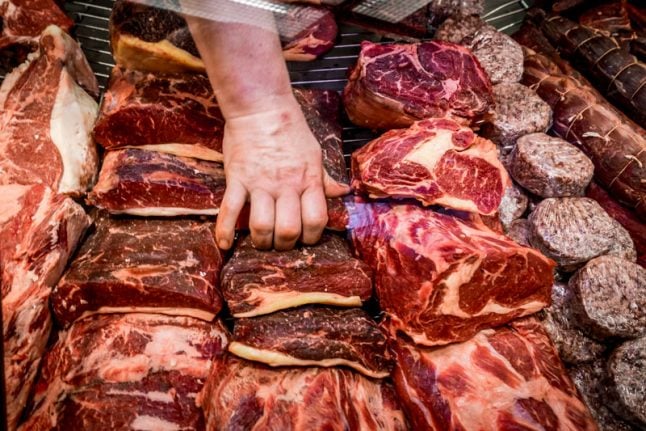ENVIRONMENT
Swedes’ meat consumption continues to decrease
Swedes are eating less meat than ever before, according to new figures from the Swedish Board of Agriculture (Jordbruksverket).
Published: 5 December 2018 21:13 CET

Photo: Magnus Hjalmarson Neideman/SvD/TT
After last year produced the largest annual reduction in meat consumption since the organization started recording the figures in 1990, the downward trend has continued throughout the first three quarters of this year.
From January through September, there was a 2.8 percent overall decline in meat consumption. On average, Swedes consumed 1.8 fewer kilograms of meat through the first nine months of 2018.
“Market trends, climate considerations, a focus on health and animal ethics are all factors in our current consumption trends,” Jordbruksverket spokesperson Åsa Lannhard Öberg said in a press release.
Although eco-conscious Swedes are likely well aware of the enormous carbon footprint of meat production, there may also be a less altruistic reason behind the decline.
“Meat sales declined in many stores during the summer as a result of the barbecue ban, but consumption is also decreasing longer-term so there we can’t just point to the summer months to explain the decline,” Lannhard Öberg said.
The summer of 2018 saw Sweden hit by the worst wildfires in more than 50 years, prompting authorities to put in place bans on all kinds of open fire, including barbecues across the country. The majority of those bans were put in place in early summer and lifted by the end of August.
Increasingly, when Swedes reach for meat products in the supermarket they are placing home-grown products in their carts. Jordbruksverket’s figures showed that demand for Swedish meat and poultry increased significantly. Domestic lamb led the way, with a six percent increase, while Swedish beef increased by 4.4 percent, pork by 3.2 and Swedish poultry by 2.3 percent.
Lannhard Öberg attributed the increases in Swedish meat and poultry to an increased focus on environmental sustainability, which she said is particularly strong within the Swedish agriculture sector.
Url copied to clipboard!


 Please whitelist us to continue reading.
Please whitelist us to continue reading.
Member comments